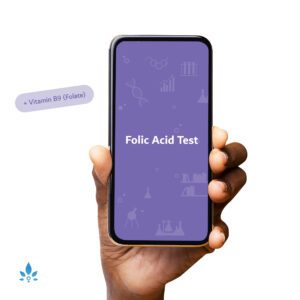What is Prenatal Genetic Screening?


Although pregnancy can be an exciting time for future parents, it can also cause anxiety and raise concerns. While parents-to-be can feel reassured in knowing that most babies are born healthy, they may still want additional information about the health of their baby. For this reason, expectant parents can choose prenatal genetic screening. These are optional tests that can indicate whether your baby is more likely to be born with certain genetic conditions.
Prenatal genetic screening cannot tell you with absolute certainty that your baby will have a genetic disorder. Your doctor may recommend further testing if the screening indicates a potential problem, and these diagnostic tests are used to give definitive information. Screening tests are considered safe, and they pose no harm to you or your baby.
First-trimester prenatal screening
Screening during the first trimester of pregnancy usually combines the results of maternal blood testing and fetal ultrasound. Try Nabta 4 Week Prenatal Course and get to know more about the importance of folic acid test
These types of screening methods include:
Ultrasound test for fetal nuchal translucency (NT): This noninvasive screening test can be performed during the 11-13th weeks of pregnancy. The test consists of an ultrasound that measures the thickness of the area behind the baby\’s neck. Extra fluid or an increase in thickness may be an indicator of Down Syndrome, trisomy 13, or trisomy 18.
Maternal blood test: A maternal blood sample can also be taken to measure the levels of two specific substances found in the blood of all pregnant women: human chorionic gonadotropin (hCG) and pregnancy-associated plasma protein-A (PAPP-A). Higher or lower amounts of these chemicals may be indicative of a chromosome abnormality.
Cell-free DNA screening: This is a blood test that can be done as early as 9 weeks of pregnancy to screen for various types of chromosomal disorders. Some of the fetus\’s DNA circulates in the mother\’s blood, and this DNA is what is tested.
Second-trimester prenatal screening
Additional blood testing is performed during the second-trimester prenatal screening. This maternal serum test is also referred to as a \”triple screen\” or \”quad screen.\” Women between 16-20 weeks of pregnancy can receive this screening test, which measures the following substances in the mother\’s blood:
- Alpha-fetoprotein (AFP)
- Estriol
- Human chorionic gonadotropin (hCG)
- Inhibin
The protein AFP is normally made by the baby\’s liver, while estriol, hCG, and inhibin are produced by the placenta. This screening test shows the chance that your baby may have spina bifida, Down Syndrome, anencephaly, and other chromosomal abnormalities.
Is prenatal genetic screening recommended?
Overall, the decision to pursue prenatal genetic screening is a personal choice that is entirely up to you. Speaking with a genetic counselor can help you determine if it is right for you.
The National Human Genome Research Institute recommends prenatal testing in the following situations:
- Pregnant women over the age of 35.
- Family history of inherited conditions.
- People from an ethnic background are at an increased risk of certain inherited conditions.
- Parents who already have a child with birth defects.
Reviewed by Dr. Jen Lincoln, December 2018
Sources:
- The American College of Obstetricians and Gynecologists
- Routine Tests in Pregnancy.
Johns Hopkins Medicine - Common Tests During Pregnancy.
Johns Hopkins Medicine - First Trimester Screening.
National Human Genome Research Institute - Frequently Asked Questions About Genetic Testing.
The American College of Obstetricians and Gynecologists - Cell-free DNA Prenatal Screening Test (Infographic).
Powered by Bundoo®












































